Queer travel trends for 2023 explained – from ‘limelight gaycations’ to ‘polydays’
The LGBTQ+ community make up one of the fastest changing and most lucrative travel markets globally
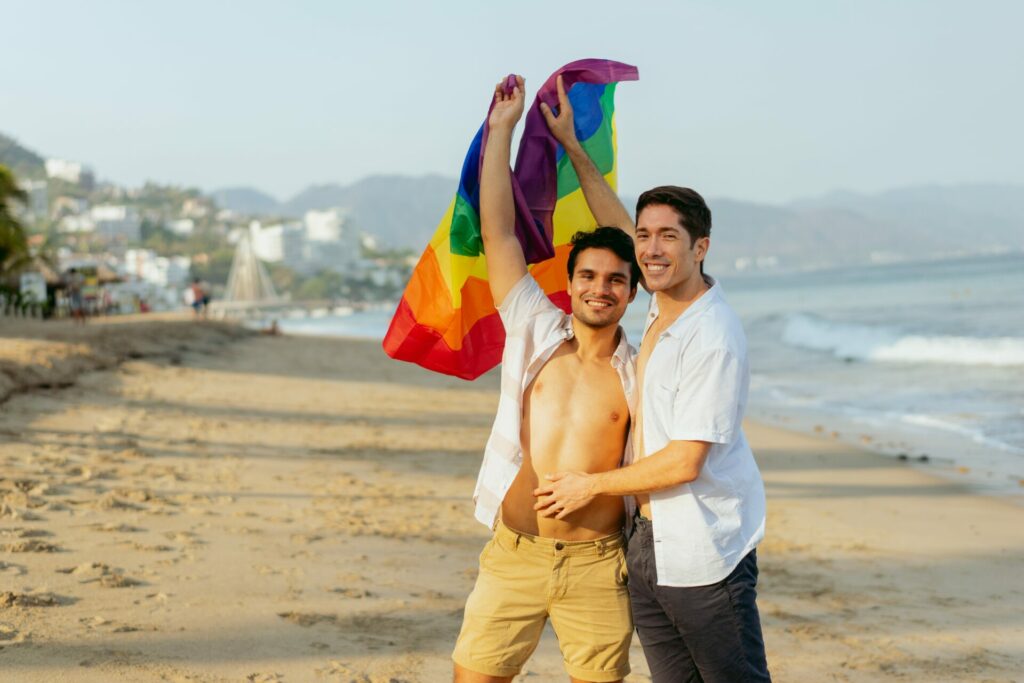
Globetrender, the UK’s leading travel trend forecasting agency, recognised the lack of forecasting for the LGBTQ+ travel market and has now released their ‘The Future of Queer Travel’ trend report this week.
The forecast, which is free to download from globetrender.com, identifies eight trends that will shape the future of travel for the LGBTQ+ market.
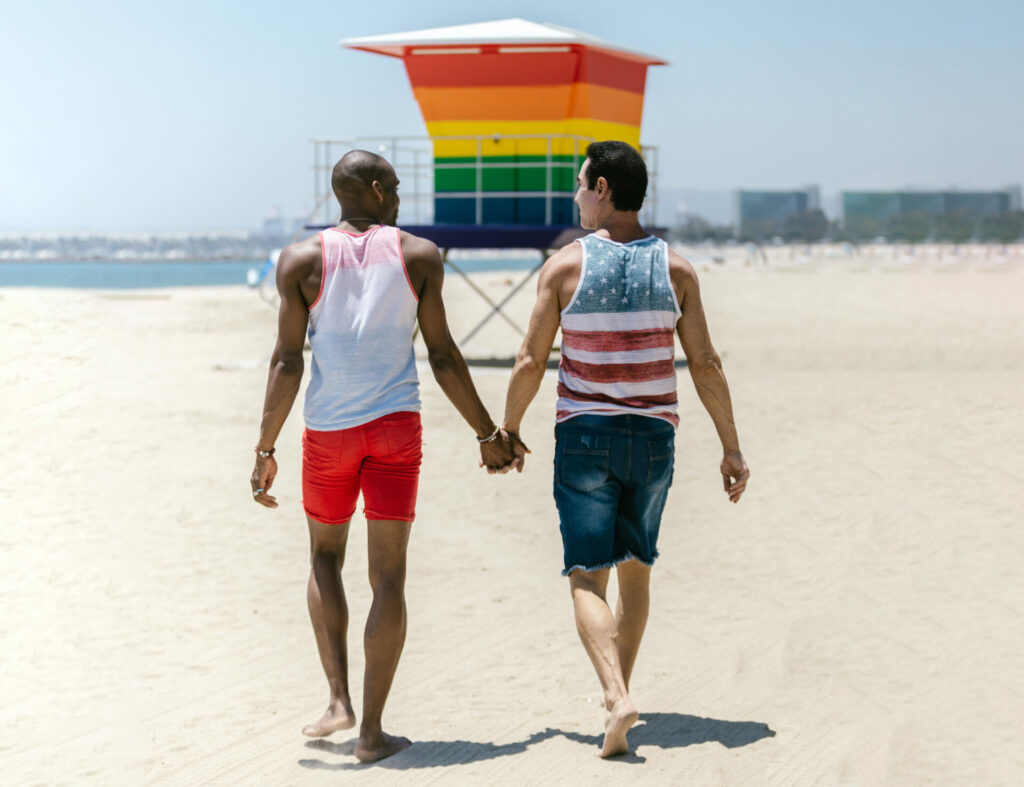
Jenny Southan, editor, founder and CEO of Globetrender, said: “Globetrender’s Future of Queer Travel trend report is a project I have personally wanted to produce for about three years. But it has taken considerable time to get off the ground.
“After I was selected as one of Attitude magazine’s “LGBTQ+ Travel Trailblazers” for 2023, I decided the moment was right. I managed to secure sponsorship from Contiki, Meet Boston and Discover New England who came on board as partners for this important piece of work.”

The report finds that before the pandemic the spending power of the queer market reached US$218 billion (£174 billion) worldwide and experts now expect that to raise to US$568.5 billion (£487 billion) by 2030.
This growth is down to factors such as: queer travellers being more intrepid for travel, having more disposable income and an increasing population of people who identify as LGBTQ+.
“After I was selected as one of Attitude magazine’s ‘LGBTQ+ Travel Trailblazers’ for 2023, I decided the moment was right”
In 2021, a landmark UK Census revealed that 6.9% of Gen Zs identified as LGB+. This is compared with 3.5% of Millennials, and 1.6% of Boomers.
Here are four of the eight travel trends highlighted in The Future of Queer Travel trend report.
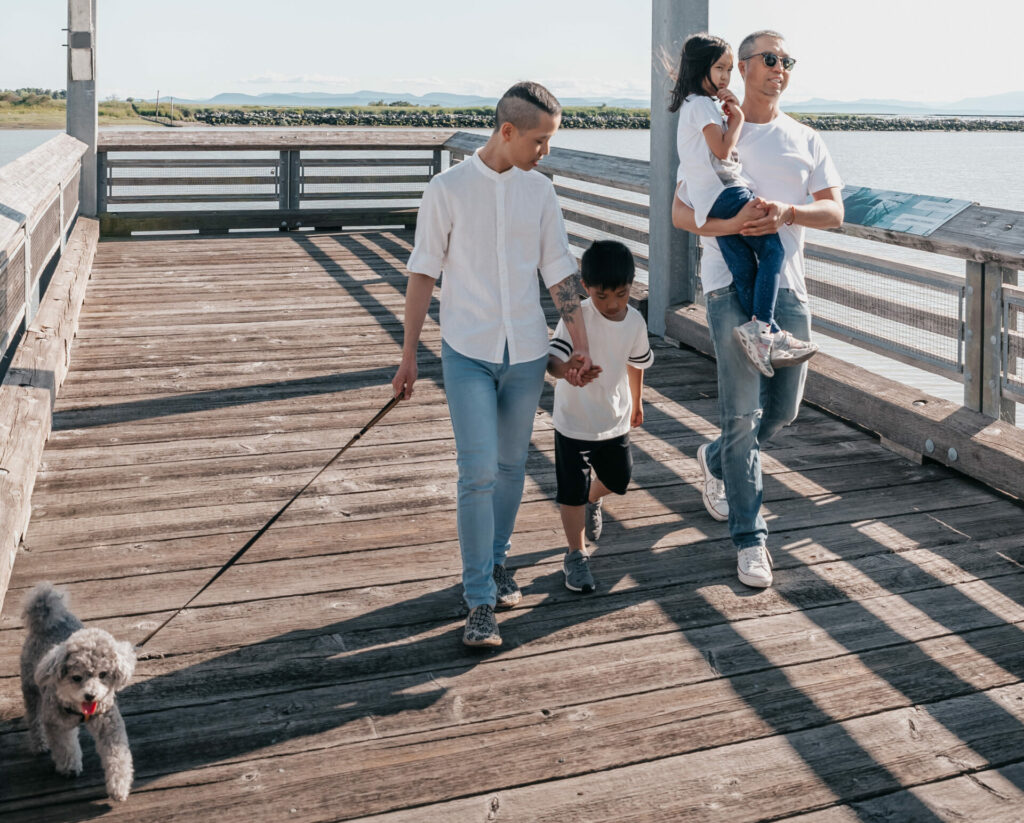
QUEER FAMILY TRAVEL
In the world’s most progressive countries, queer families have only been “legal” for about 20 years. This means Millennials are the first generation to be able to embrace queer parenthood in a socially acceptable way, with the law on the side of them and their children. The first adoptions by same-sex couples in Finland didn’t happen until 2020. This year, Taiwan became the first jurisdiction in Asia to allow same-sex parents to adopt.
From surrogacy to IVF, there are many paths to parenthood, but for queer people the rules and rights within countries that support queer families remain complex. Popular holiday destinations that could be problematic for queer families to go to due to anti-LGBTQ+ laws include: Barbados, Jamaica, Saint Lucia, Indonesia, Malaysia, Mauritius and Morocco.
However, as Stu Oakley highlights in The Queer Parent, even when you make a sensible choice about a queer-friendly destination (such as Cuba), you can’t always predict who the other guests at the resort will be. In his case, he encountered a group of Russian women who left in the middle of their meal when they found out he was gay. This came after they’d been admiring his three children and asked where their mother was.
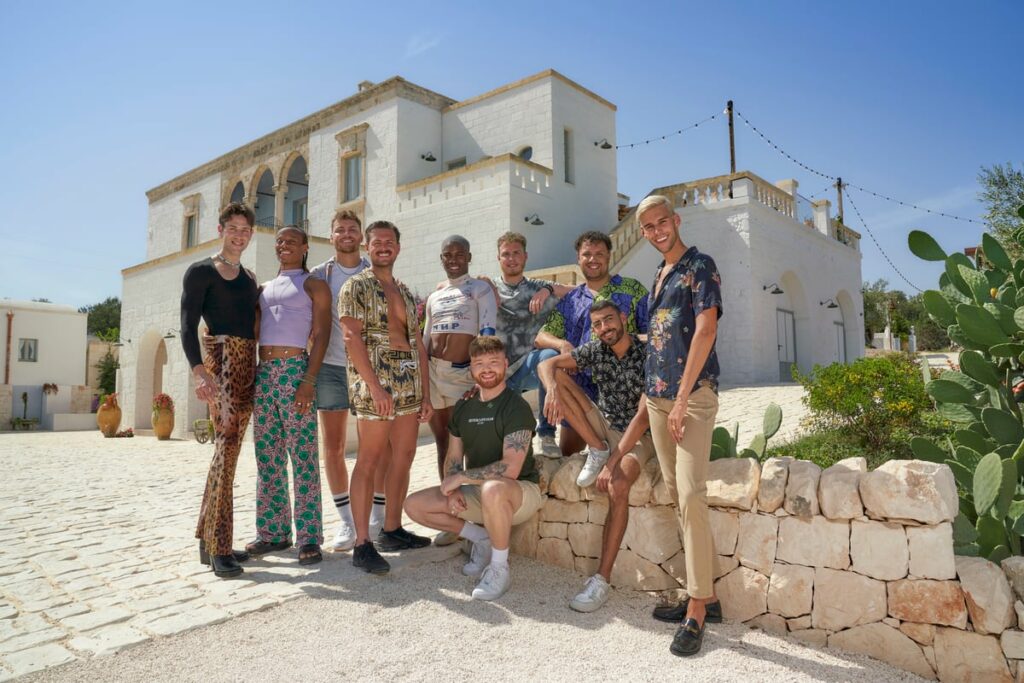
LIMELIGHT GAYCATIONS
According to a 2023 survey by American Express, 64% of respondents said they made travel plans or were inspired to visit a specific country or destination after it was featured on a TV show or film. For the queer community, “Limelight Gaycations” will be particularly in demand, especially as there is so much more positive queer content appearing on screens.
Google searches for “masseria” rentals in southern Italy boosted thanks to reality show I Kissed a Boy, which recently aired on the BBC. Set in a stunning renovated farmhouse, I Kissed a Boy brings together a diverse pool of young gay men with the aim of finding out if a single kiss can spark a long-lasting relationship.
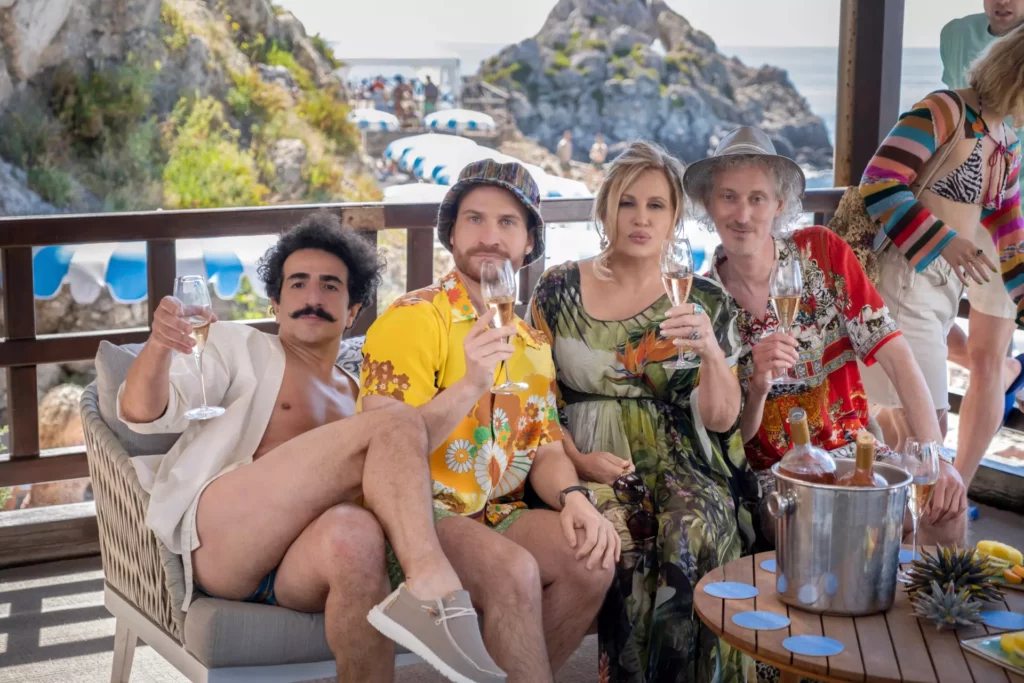
Probably the hottest example of a TV show that has made headlines not only for its brilliant storytelling but for its cast of camp and queer characters is The White Lotus. The Four Seasons Resort Maui at Wailea was the setting for season one. Meanwhile, season two was set in Sicily, at the San Domenico Palace, Taormina – also a Four Seasons hotel.
Bookings exploded to such an extent after it aired in autumn 2022 that the travel industry dubbed it “The White Lotus Effect”. Season three will be set in the queer-friendly country of Thailand, which once again offers high hopes.
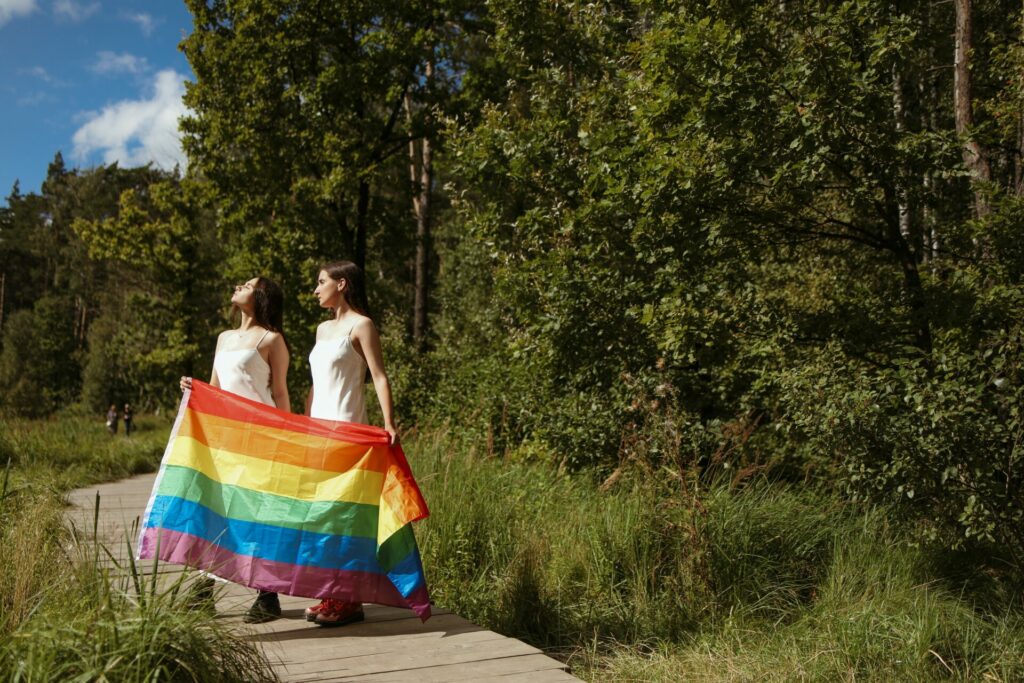
RAINBOW REBELLIONS
As every queer person knows, there are situations – often on a daily basis – where we know we have to modify our behaviour or protect our true identity in some way. While this is not an optimum way of living, this ability to “social camouflage” means that a rising number of queer people are willing to sacrifice personal liberties in favour of exploring destinations in spite of their anti-LGBT laws.
For a lot of privileged Westerners (especially Millennials) for whom travel has felt like a right, being queer is not enough of a reason not to go somewhere. A sense of defiance combined with entitlement motivates them to book “Rainbow Rebellions”. These are to destinations such as the Middle East, Africa, Jamaica, Malaysia and China. Another reason is that local laws tend to be enforced more on local people than foreign tourists. As long as queer travellers “keep their heads down” they can avoid confrontations.
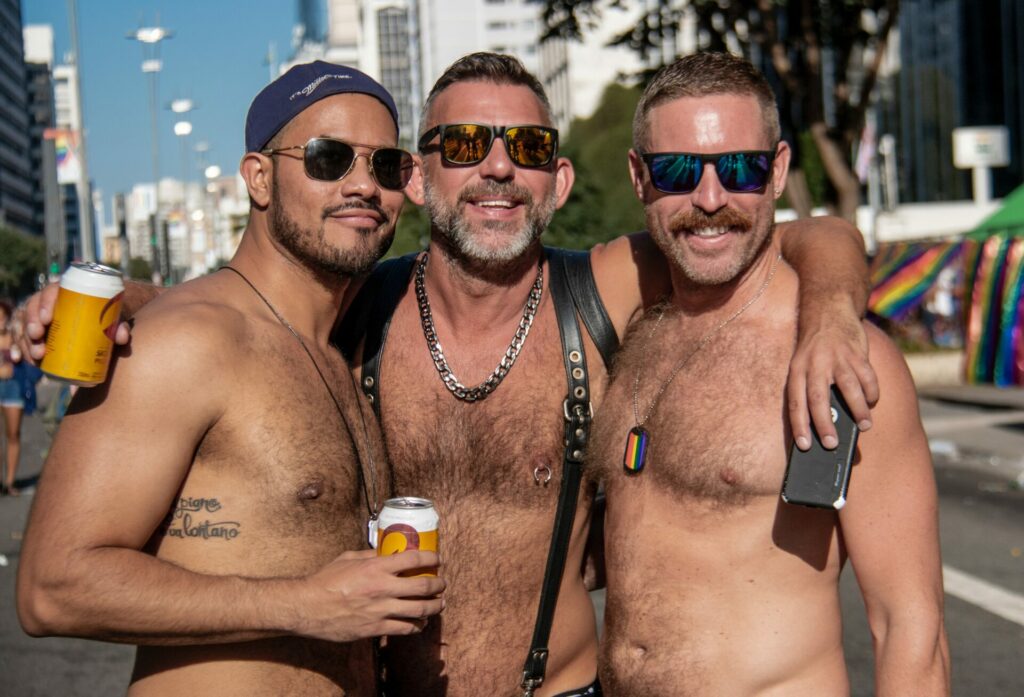
POLYDAYS
Welcome to travel’s new “sharing economy”: polyamory, a form of ethical non-monogamy. Individuals form romantic connections with more than one partner at the same time. Polyamory will transform the way we think about everything from marriage and families, to dating and divorce, in years to come. For example, could removing the pressure of monogamy lead to the number of break-ups going down?
Although the trend is occurring among straight people too, the queer community is already ahead of the curve. Looking at the corresponding emerging travel trend, when a “throuple” goes on holiday, Globetrender calls it a “Polyday”.
One in nine Americans have been in a polyamorous relationship and one in six would like to try one, according to Newsweek, in 2021. Meanwhile, data from dating app Feeld shows there was a 500% increase in searches for “polyamory” in 2022.
You can download the full The Future of Queer Travel trend report here.
